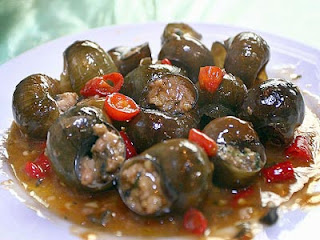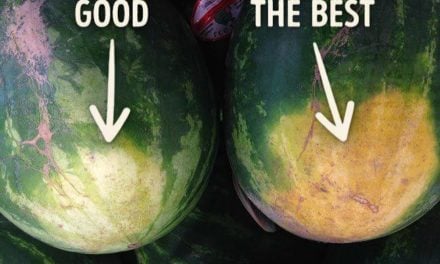July is Bladder Cancer Awareness Month. The bladder is a balloon-shaped organ in the lower abdomen that stores urine. Bladder cancer is the second most common urogenital cancer after prostate cancer.
Globally, there were about 430,000 new cases of bladder cancer and about 165,000 deaths from bladder cancer in 2012. In Nigeria, there are about 1000 new cases of bladder cancer and over 600 deaths annually. This implies that bladder cancer kills two Nigerians every day.
This number excludes so many victims who die of the ailment undiagnosed, due to poor diagnostic facilities especially in rural areas where it is prevalent. A recent well-known casualty was Rt. Hon. Samuel Ajayi Adesina, Speaker, Ondo State House of Assembly who died in February 2014, at the age of 56.
Unlike the western world where tobacco smoking is the main contributor to bladder cancer, the major risk factor in Nigeria is infection with a parasitic flatworm called Schistosoma hematobium. This infection is known as schistosomiasis (bilharziasis) or “snail fever”.
The infection usually occurs in childhood. Prevalence and intensity of infection increase with age, peaking in the 5 to 14 year age group.
If untreated, it could result in bladder cancer in adulthood with a peak age incidence in the late 40s and 50s. The majority of bladder cancer cases occur in farmers and fishermen living in regions along the river.
This relationship between schistosomiasis and bladder cancer explains why schistosomiasis is one of the targeted diseases of the Big War Against Cancer in Nigeria, the flagship focal cause of the Committee Encouraging Corporate Philanthropy (CECP-Nigeria). The first phase of the Big War is aimed at “Taking holistic health care to the grassroots” by raising funds to acquire and deploy 37 Mobile Cancer Centres (MCCs), one for each state and Abuja.
Schistosomiasis ranks second only to malaria as the most common parasitic disease. However, it is the most deadly Neglected Tropical Disease (NTD) – the so-called forgotten diseases of forgotten people – killing an estimated 280,000 people globally, each year.
About 700 million people are at risk of schistosomiasis in 78 countries, with almost 240 million people infected worldwide. The infection is prevalent in tropical and sub-tropical areas, in poor communities without potable water and adequate sanitation, with 90% of the burden occurring in Africa.
Sadly, Nigeria is thought to have the greatest number of people infected with schistosomiasis in the world, with approximately 20 million sufferers — mostly children. Delta, Edo, Plateau and Nasarawa states have the highest incidence.
For communities already burdened by poverty and ravaged by scourges such as malaria and tuberculosis, schistosomiasis is especially devastating, weakening the body’s resistance to other infections and preventing children from reaching their full potential.
Schistosomiasis is transmitted by contact with contaminated fresh water (lakes and ponds, rivers, dams) inhabited by snails carrying the Schistosoma parasite. Swimming, bathing, fishing and domestic chores such as laundry can put people at risk of contracting the disease.
Hygiene and play habits make children especially vulnerable to infection. Larvae emerge from the snails and swim in the water until they come into contact with and penetrate human skin.
Once inside the body, the larvae develop into worms, which live together in the blood vessels for years. Female worms release thousands of eggs which are passed out of the body in the urine and feces.
If people urinate or defecate in bodies of freshwater, the eggs migrate to snails where they eventually hatch and begin the cycle again. Some Schistosoma eggs, however, remain trapped in the body and migrate to specific organs where they can inflict major damage. Urinary schistosomiasis causes scarring of the bladder and kidneys, and can lead to bladder cancer.
For the avoidance of doubt, it is important to stress that neither snail farming nor snail consumption puts a person or community at the risk of schistosomiasis or bladder cancer.
Symptoms of urinary schistosomiasis include initial itching and rash at infection site (“swimmer’s itch”), frequent, painful or bloody urine and lymph node enlargement. Ironically, the incidence of schistosomiasis is so high in some communities in Nigeria that youths regard the bloody urine passed at some stage of the disease as a sign of attainment of maturity, a rite of passage from adolescence to adulthood. Therefore, they do not seek medical advice or treatment. Symptoms of bladder cancer are similar to that of schistosomiasis. The most common symptom of bladder cancer is blood in the urine which can happen suddenly and may come and go.
The mainstay of schistosomiasis control is treatment with a single dose of a tablet known as Praziquantel. Other control measures include improved sanitation, health education and control of freshwater snails.
Early and regular administration of Praziquantel reduces the occurrence, extent, severity, and long-term consequences of the disease. The goal should be to achieve a minimum target of regular administration of Praziquantel to at least 75% of all school-age children and at risk special groups.
Schistosomiasis outbreaks can be identified by mapping the rates of blood in the urine of school-age children. If the rates are high, the drug is distributed to the entire community at risk. Annual dosing of Praziquantel is recommended for areas at high risk for re-infection, and to help reduce the severity of symptoms in chronic sufferers.
Merck (the manufacturer of Praziquantel) has committed to donate 250 million tablets of praziquantel annually, at a cost of US$ 23 million per year. So far, over 100 million tablets have been donated, and over 28 million children have been treated.
The major control effort in Nigeria has been through the Carter Centre, an America-based organization, which has been working in Delta, Nasarawa, Edo, and Plateau states since 1999. The current coverage of the schistosomiasis control programme in Nigeria is less than six per cent in spite of the fact that the drug has been donated free of charge by Merck. According to data released by WHO, Nigeria has one of the worst coverage in the world and compares unfavourably with better coverage in countries like Burkina Faso (96.4%), Togo (94.80%), among others.
Little wonder then, a study in Nigeria, showed nearly five fold increase in the number of bladder cancer cases between 1999 and 2004. On the other hand, the use of this drug, as well as lower infection rates due to urbanization, is thought to have led to a substantial decrease in incidence of schistosoma-associated bladder cancer in Egypt over the past few decades.
According to data from the National Cancer Institute (NCI) of Egypt, with the control of schistosomiasis in Egypt, the frequency of bladder cancer dropped over a period of 10–15 years. In late 1980s and early 1990s, bladder cancer accounted for about 27% of all cancers seen at the NCI. In more recent years, the data of the population based National Cancer registry in Egypt, showed a frequency rate range of less than 10%. Clearly, changes in the incidence of schistosomiasis reflect on the changing incidence of bladder cancer.
In Nigeria, the Mobile Cancer Centre (MCC) being championed by the CECP would be an excellent means of taking health education, screening as well as the Praziquantel therapy to the grassroots, thereby improving the coverage of praziquantel in Nigeria, and reducing the devastating effect of schistosomiasis especially bladder cancer.
An MCC is much more than a Mobile Mammogram. Rather, it is a clinic on wheels, in which screening, follow-up and treatment (including surgeries), can take place. It includes facilities for mammography, sonology, colonoscopy, colposcopy and cryotherapy, as well as a surgical theatre. It is also equipped with a laboratory for screening against most common diseases, including the 10 major cancer-related killer diseases (Diabetes, Renal Disease, Obesity, Malaria, Schistosomiasis, Helicobacter pylori, Hepatitis, HIV/AIDS, Human Papillomavirus (HPV) and Hypertension). Thus, the MCC would tackle the double burden of disease, i.e. Communicable & Non-Communicable.
The MCC is perhaps the single most important means of raising the life expectancy of Nigeria which is currently the 12th lowest globally. Cancer and these 10 disease conditions are the main culprits responsible for this low life expectancy. A single MCC in a state of Nigeria could make a huge positive difference. That state would be divided into smaller units such that every community would be reached by the MCC at least once a year.
The cost of one MCC is $600,000 only (about N120, 000,000 at the current exchange rate) and its operational cost for one year (including cost of personnel, supplies and maintenance) is $685,000.
To actualize its vision, the CECP is involved in a fund-raising campaign, known as the #GivingTide. A highpoint of the #GivingTide is the National Cancer Week (NCW). At the just concluded Banquet Of Stars Against Cancer 2015, the climax of the NCW), the Lagos State Governor, H.E. Mr. Akinwunmi Ambode, FCA, dedicated his birthday to the Big War Against Cancer, thus setting the tone for the CECP MoreLife initiative.
MoreLife is a subtheme of #GivingTide, aimed at encouraging the use of individual and corporate milestones to promote the focal cause of CECP. These milestones include birthdays, wedding anniversaries, memorials or corporate annual general meetings/corporate anniversaries.
‘MoreLife’ is so-named because the event is an opportunity for the celebrant/honouree to add life to the less privileged in society in gratitude for one more year added to his/her life. Everyone is encouraged to enlist as a MoreLifer in support of the Big War Against Cancer in Nigeria. Further information on the MoreLife initiative could be obtained at www.givingtide.org.
“By moving forward together we have the potential to show Cancer: It is not beyond us.”- UICC 2015.
Dr. Nzelu (Executive Secretary, CECP-Nigeria) can be reached via info@cecpng.org or info@givingtide.org
Source: The Guardian





